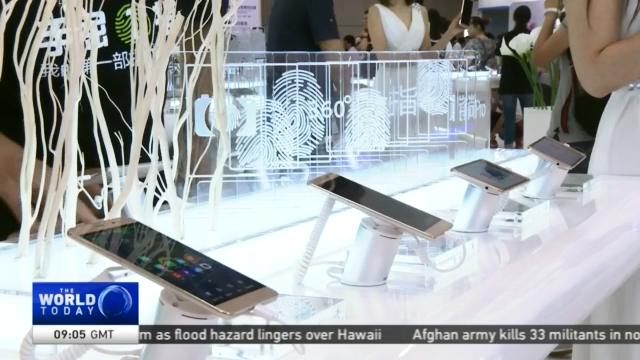
18:54, 25-Aug-2018
China-US Trade Tensions: Academics, business people say cooperation is the way forward
Updated
18:33, 28-Aug-2018
03:28

There's seems no end to tensions between China and the United States. There's already 50-billion dollars' worth of tariffs slapped on each of the two economies. Our reporter Wei Lynn Tang checked in with a few academics and industry leaders at the Smart China Expo 2018 in Chongqing to get their thoughts.
An additional 16 billion dollars' worth of import tariffs kicked in both ways between China and the United States, with seemingly no end in sight, as the latest round of trade talks concluded with little progress.
An academic believes these trade tensions will not last long, and that the two countries will eventually compromise. Professor Xiong Yu, who is also with a firm that specializes in China-Europe cross-border technology transfer, also thinks China will win the battle, because it has more alliances.
XIONG YU, CHAIR PROFESSOR OF NEWCASTLE BUSINESS SCHOOL NORTHUMBRIA UNIVERSITY "UK likes China, Korea wants to work with China, even Japan wants to explore collaboration not only in market but also in technology, so the US may lose alliances if they still keep fighting in this war."
One of the world's biggest smartphone makers, China's Huawei Technologies, expects the broader trade war to impact its market footprint. But the firm believes its development of 5G technology, one of its key focuses for future growth, will remain unharmed.
ZHU HUIMIN, 5G GLOBAL VICE PRESIDENT & CHIEF MARKETING OFFICER HUAWEI TECHNOLOGIES "China is a huge market, if you look at the base station numbers in LTE that has triggered almost 3 million, I think this is enough to feed vendors like Huawei. See we have zero market share in the US so this kind of trade war, there's some influence, but not so much."
Huawei says its self-made chips and core technology, the Kirin processor for handsets and high silicon chips for its base stations, will buffer it against any external supply shocks.
China has called for a sense of urgency in boosting its capacity to build core technology for the information and communication industry. The country aims to have smartphones using homemade chips account for 40 percent of the local market by 2025.
Professor Xiong Yu believes China is able to achieve this goal, but notes that it's not critical. He is also of the view that China does not need to master every single technology.
XIONG YU, CHAIR PROFESSOR OF NEWCASTLE BUSINESS SCHOOL NORTHUMBRIA UNIVERSITY "Even UK, France, US do not have every single technology, we can collaborate, if somebody else can do it better at this moment, we can save the money and we invest something even better, something that does not exist. Then we exchange, we respect each other's inventions, so in this way I feel that China can even be more competitive."
The consensus from the ICT industry is clear, Cooperation is the way forward, not tariffs.
DR. CHEN JIN QIAO, DEPUTY CHIEF ENGINEER CHINA ACADEMY OF INFORMATION AND COMMUNICATIONS TECHNOLOGY "Only by international cooperation consumers can get good products at reasonable price, if you leave tariffs out."
Meanwhile, some experts also say that China's continued opening-up of its markets is the way forward, in what looks like becoming a long drawn out trade battle. WLT, CGTN, Chongqing.

SITEMAP
Copyright © 2018 CGTN. Beijing ICP prepared NO.16065310-3
Copyright © 2018 CGTN. Beijing ICP prepared NO.16065310-3